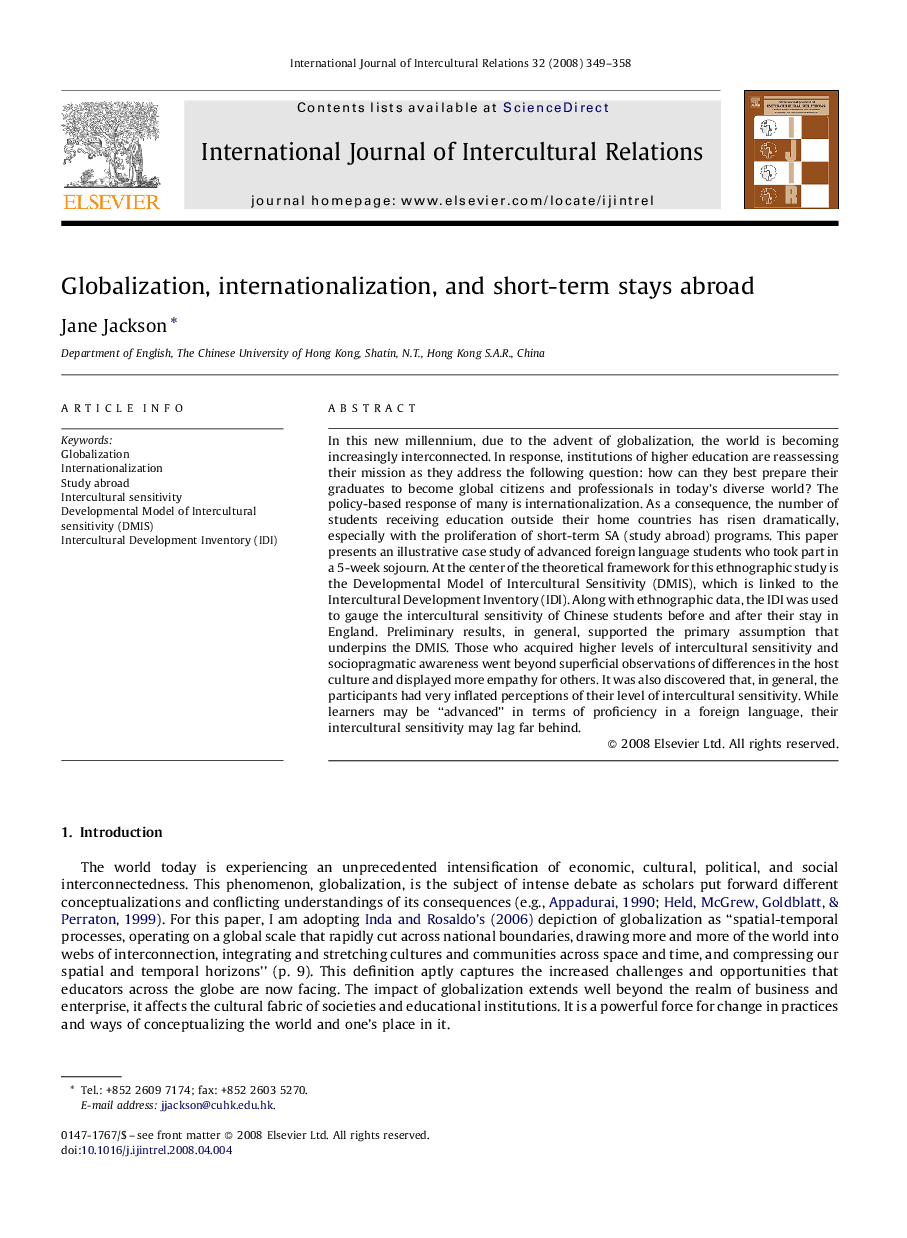| Article ID | Journal | Published Year | Pages | File Type |
|---|---|---|---|---|
| 947535 | International Journal of Intercultural Relations | 2008 | 10 Pages |
In this new millennium, due to the advent of globalization, the world is becoming increasingly interconnected. In response, institutions of higher education are reassessing their mission as they address the following question: how can they best prepare their graduates to become global citizens and professionals in today's diverse world? The policy-based response of many is internationalization. As a consequence, the number of students receiving education outside their home countries has risen dramatically, especially with the proliferation of short-term SA (study abroad) programs. This paper presents an illustrative case study of advanced foreign language students who took part in a 5-week sojourn. At the center of the theoretical framework for this ethnographic study is the Developmental Model of Intercultural Sensitivity (DMIS), which is linked to the Intercultural Development Inventory (IDI). Along with ethnographic data, the IDI was used to gauge the intercultural sensitivity of Chinese students before and after their stay in England. Preliminary results, in general, supported the primary assumption that underpins the DMIS. Those who acquired higher levels of intercultural sensitivity and sociopragmatic awareness went beyond superficial observations of differences in the host culture and displayed more empathy for others. It was also discovered that, in general, the participants had very inflated perceptions of their level of intercultural sensitivity. While learners may be “advanced” in terms of proficiency in a foreign language, their intercultural sensitivity may lag far behind.
